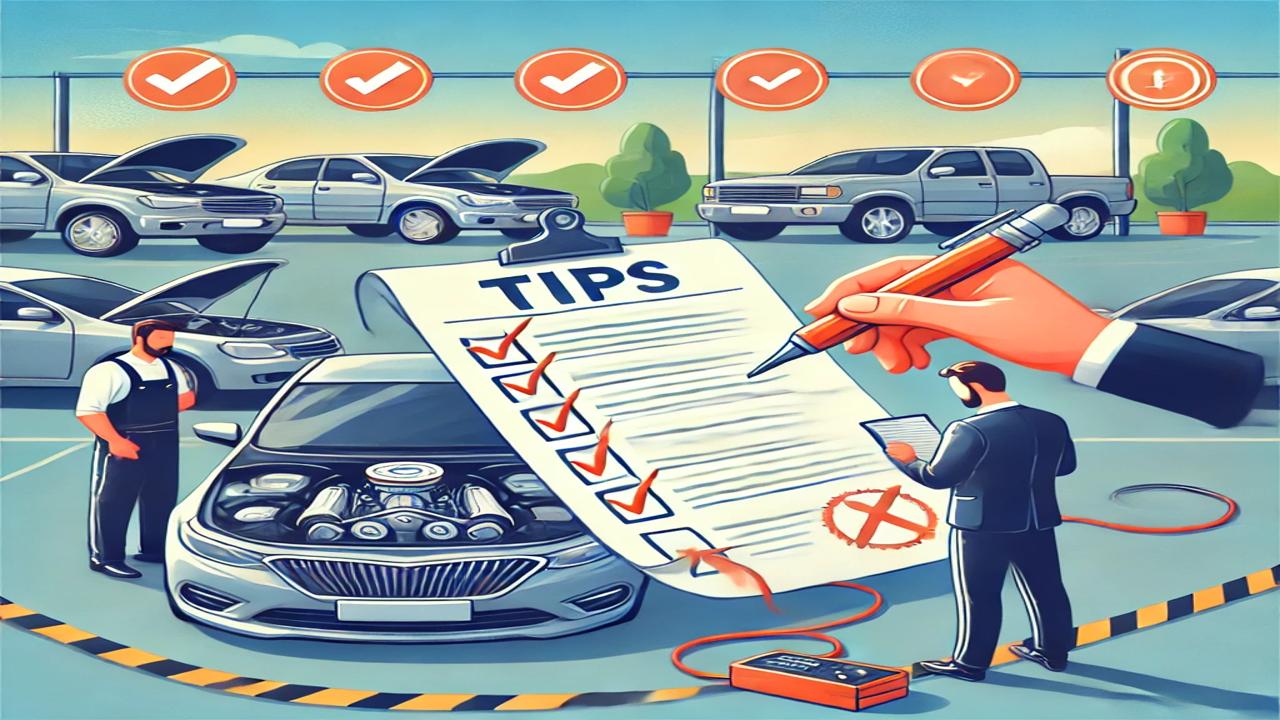5 Essential Rules to Follow When Buying a Used Car

Buying a used car can be a great way to save money, but it's important to keep a few key points in mind when making your decision. A good used car can provide you with many years of trouble-free driving, but choosing the wrong one can lead to significant costs. Here are 5 essential rules to consider when buying a used car:
-
Research the Car's History When buying a used car, it’s crucial to gather information about the vehicle's history. This includes details like accident history, previous owners, maintenance records, and whether the car has been rented out. Asking questions about the car’s past can provide valuable insights into its condition. You can use services like insurance companies or vehicle history checks to learn more.
-
Check the Mileage and Age The mileage of the car indicates how much it has been used and how much life it has left. However, a low-mileage car isn't always problem-free. As cars age, their mechanical parts tend to wear out. Be sure to check if the odometer has been tampered with, and consider the vehicle’s age when assessing its maintenance needs and potential issues.
-
Inspect the Exterior and Interior Condition The exterior and interior condition of the car is essential for both aesthetic reasons and to detect potential mechanical problems. Carefully examine the car's exterior for any dents, scratches, painted areas, or rust spots. The condition of the paint and body can provide clues about whether the car has been in an accident. The interior cleanliness also reflects the car’s usage. Pay attention to the wear and tear on the seats, steering wheel, pedals, and dashboard.
-
Take It for a Test Drive A test drive is a must when buying a used car. It allows you to get a feel for the car's driving dynamics and can uncover hidden issues. Check the steering response, brake efficiency, engine noise, and overall driving comfort. Any unusual noises, vibrations, or odd sounds should raise a red flag. Pay close attention to acceleration, road handling, and braking performance during the test drive.
-
Research the Seller’s Reputation The reputation of the seller is crucial when buying a used car. When buying from private sellers, it’s a good idea to research their history and ask for references. Check reviews about the cars they have sold in the past. If purchasing from a dealership, research the dealership's reputation, the warranties they offer, and their post-sale services. Ensure you carefully read the terms of the sale contract and have a written agreement in place to protect your rights in case of disputes.
Conclusion:
Buying a used car can be a smart decision if you take the right steps. Not all cars have been maintained in the same way, and not every seller is reliable. By researching the car's history, reviewing its mileage and age, inspecting its condition, taking a test drive, and buying from a trusted seller, you can have a successful experience when purchasing a used car. Remember, thorough research and careful inspection will save you from significant expenses in the long run and help you find a car that suits your needs.










